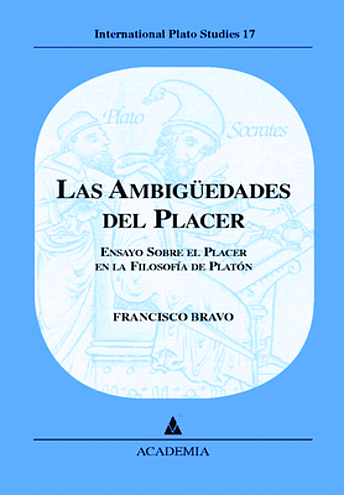Bravo
Las ambigüedades del placer
ISBN 978-3-89665-272-0
englischTwo questions command Plato's scrutiny of pleasure in the dialogues: what is pleasure? What its place is in the happy human life? The attempts to anwer the first one have originated a platonic physics, physiology, psychology and ontology of pleasure, which have paved the way to an epistemology of it. In each of these levels, the being of pleasure acquires form through its relations: with pain, with desire, with opinion, etc. The attempts for solving the second question have generated a platonic ethics, politics and pedagogy of pleasure. A real or merely apparent hedonism alternate in the dialogues with a real or merely apparent anti-hedonism of several kinds. Is there in Plato a way of overcoming this puzzling tension? This examination is a first attempt of approching Plato's analysis of pleasure in its broadest terms.
englischTwo questions command Plato's scrutiny of pleasure in the dialogues: what is pleasure? What its place is in the happy human life? The attempts to anwer the first one have originated a platonic physics, physiology, psychology and ontology of pleasure, which have paved the way to an epistemology of it. In each of these levels, the being of pleasure acquires form through its relations: with pain, with desire, with opinion, etc. The attempts for solving the second question have generated a platonic ethics, politics and pedagogy of pleasure. A real or merely apparent hedonism alternate in the dialogues with a real or merely apparent anti-hedonism of several kinds. Is there in Plato a way of overcoming this puzzling tension? This examination is a first attempt of approching Plato's analysis of pleasure in its broadest terms.


